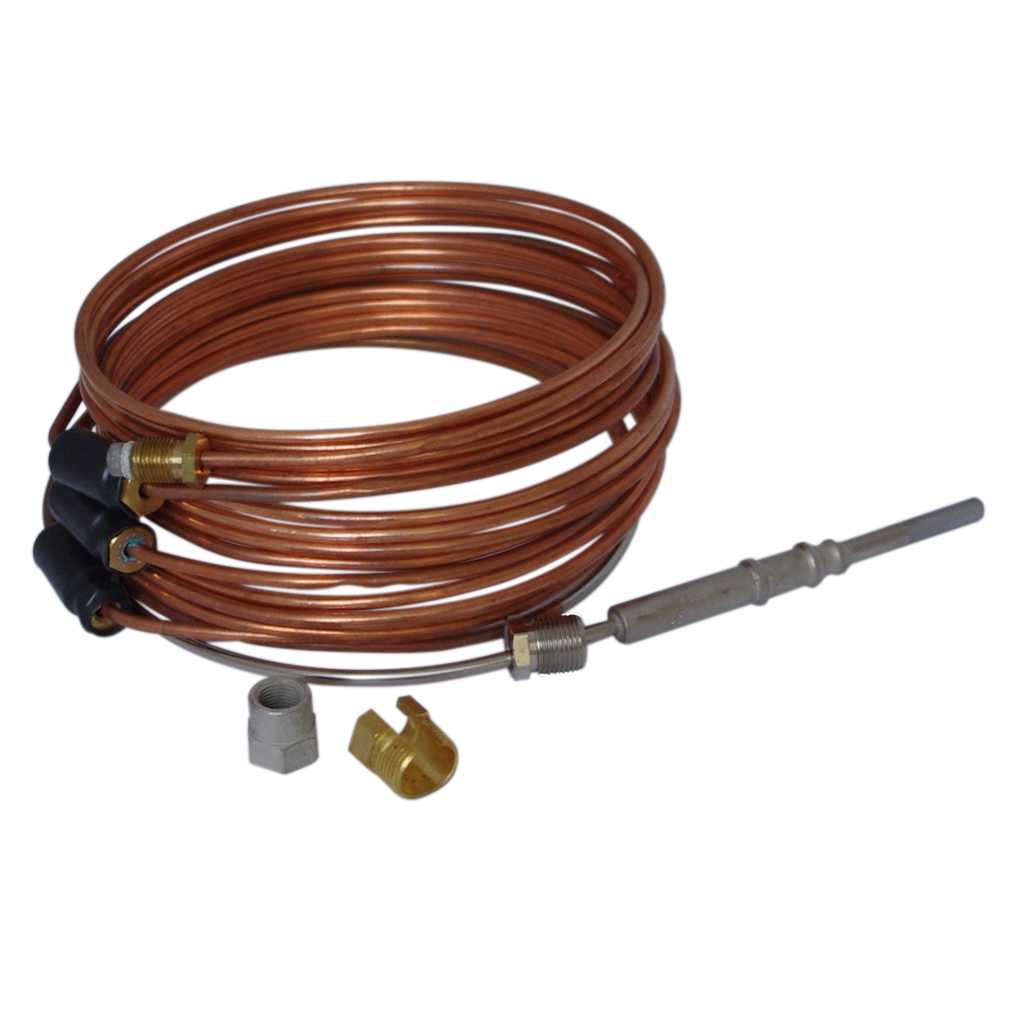
Nickel-plated thermocouples are temperature sensors that have
a nickel-plated coating on the exposed surfaces of the
thermocouple wires and sometimes on the connector or probe
housing. This plating serves several purposes and provides
specific benefits for certain applications. Here are some key
points about nickel-plated thermocouples:
Key points:
Corrosion Resistance: The nickel plating on the
thermocouple wires enhances their resistance to corrosion.
Nickel is known for its corrosion resistance, making it
suitable for applications in corrosive environments, such as
chemical processing, marine environments, and certain
industrial processes.
Oxidation Protection: Nickel plating provides a
protective layer on the thermocouple wires, preventing or
reducing oxidation at high temperatures. This is especially
important for applications where the thermocouples are exposed
to elevated temperatures or oxidizing atmospheres.
Wear Resistance:
Nickel plating increases the wear resistance of the
thermocouple wires, making them more durable in harsh
operating conditions. This can be beneficial in applications
that involve mechanical abrasion, vibrations, or frequent
handling.
Electrical Conductivity:
Nickel is a good electrical conductor, and the nickel plating
helps maintain electrical conductivity along the length of the
thermocouple wires. This ensures accurate temperature
measurements and reliable signal transmission.
High-Temperature Applications:
Nickel-plated thermocouples are suitable for high-temperature
applications where the operating temperatures exceed the
limits of other standard thermocouple constructions. The
nickel plating helps protect the thermocouple wires from
oxidation and degradation at elevated temperatures.
Applications -
Nickel-plated thermocouples find applications in various
industries and environments where temperature measurement is
required, along with specific requirements for corrosion
resistance and high-temperature stability.These applications
highlight the importance of nickel-plated thermocouples in
environments where corrosion resistance and high-temperature
stability are crucial. The use of nickel-plated
thermocouples ensures accurate temperature measurement and
helps maintain process control, product quality, and safety
in various industries and applications. Here are some common
applications of nickel-plated thermocouples:
1. Chemical Processing: Nickel-plated thermocouples are
well-suited for temperature measurement in chemical
processing plants, where corrosive chemicals and aggressive
environments are present. They are used in reactors,
pipelines, storage tanks, and other equipment to monitor and
control temperatures during chemical reactions and
processes.
2. Oil and Gas Industry: The oil and gas industry often
requires temperature measurement in harsh environments,
including offshore platforms, drilling operations, and
refineries. Nickel-plated thermocouples offer corrosion
resistance and can withstand the corrosive effects of
hydrocarbons and other chemicals encountered in these
applications.
3. Petrochemical Plants: Petrochemical plants involve the
processing of raw materials derived from petroleum and
natural gas. Nickel-plated thermocouples are used in various
stages of petrochemical production, such as distillation,
cracking, and catalytic processes, where resistance to
corrosion and high temperatures is essential.
4. Marine and Offshore Applications: Nickel-plated
thermocouples are utilized in marine and offshore
environments, where exposure to saltwater, moisture, and
harsh weather conditions can lead to corrosion. They are
employed in temperature monitoring for engine rooms, cargo
holds, ballast tanks, and other marine and offshore
equipment.
5. Power Generation: Nickel-plated thermocouples are
commonly employed in power generation facilities, including
thermal power plants and nuclear power plants. They are used
in boilers, turbines, heat exchangers, and other critical
components to monitor temperature and ensure safe and
efficient power generation.

